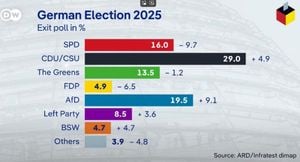Lebanon is currently embroiled in a significant investigation concerning the alleged misuse of funds from the Amwal program, which was established to bolster economic development across the country. This scrutiny follows rising tensions surrounding financial management and transparency as the nation faces severe economic challenges, including soaring inflation and high unemployment rates.
The Amwal program, initiated by the Lebanese government, aimed to stimulate economic growth by providing financial resources to various sectors including infrastructure, education, and small businesses. Recent reports have raised alarming concerns about how these funds have been allocated, leading to calls for accountability from both local officials and international organizations.
According to Al Jazeera, one anonymous official remarked, “There are serious concerns about how these funds have been managed.” This statement echoes the sentiments of many who believe the program has been poorly supervised, contributing to widespread mismanagement and inadequate support for the intended beneficiaries.
Over the past year, various audits have indicated irregular financial practices within the Amwal program. Investigators are focusing on transactions involving major stakeholders, with some key players being summoned to clarify their roles and the flow of funds. Observers point out this could be pivotal for identifying systemic corruption within the broader framework of Lebanese governance.
Activists and local groups are increasingly vocal about the need for reform. An activist emphasized the significance of the investigation by stating, “Accountability must be prioritized to restore public trust.” The call to action highlights the growing frustration among citizens who feel their government has failed them during these dire economic times.
The socio-economic consequences of this investigation extend beyond mere financial discrepancies. If the allegations are proven true, they could lead to the loss of public confidence not only in the Amwal program but also in the Lebanese government's capability to manage international donor funds effectively.
International scrutiny has intensified, with donor countries and organizations urging Lebanon to improve governance and transparency measures. There is pressure to hold officials accountable to prevent any future financial misconduct and to demonstrate Lebanon's commitment to economic reform as it seeks assistance during its recovery phase.
Community leaders and local economists are closely following the investigation, stressing the importance of confidence-building measures for the future sustainability of any governmental programs. The findings could serve as a litmus test for Lebanon's economic governance, determining whether it can attract foreign investments and aid necessary for its recovery.
The Amwal program's current crisis serves as yet another indicator of Lebanon's broader systemic issues related to financial management and governance. If reforms are enacted and accountability achieved, it may potentially restore citizens' faith in their government and help guide the nation to stability.



